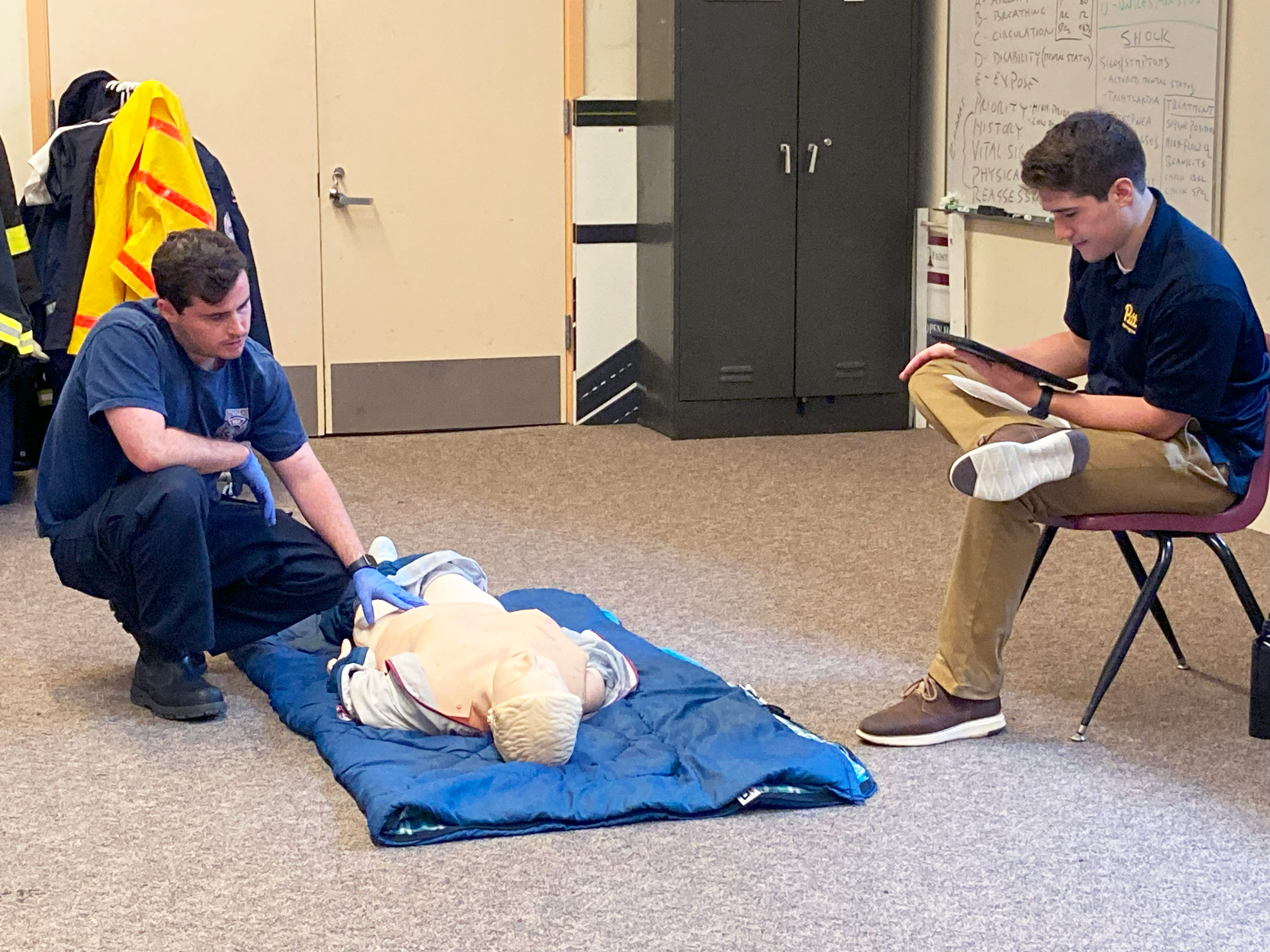Pitt innovators frequently share their stories with us of their moments of epiphany, when they realize that the blood, sweat and tears they have poured into their research has produced something that might have lasting value and can improve the world in some way.

Sandra Katz studies peer-to-peer learning techniques at the University of Pittsburgh Learning Research & Development Center.
While working with undergraduate seniors in the School of Health and Rehabilitation Science’s Emergency Medicine program to compare the effectiveness of different methods of de-briefing following an emergency medical scenario simulation, something interesting happened.
“A few of them said, ‘Wow, I wish I had this to practice with when I was getting ready for the emergency medical technician (EMT) certification exam,’ Katz recalled.
So she decided to survey juniors in the program to ask if they thought the platform, if further built out, would help them in preparing for their clinical work. The response blew her away, with several students asking if they could have a copy of the very basic prototype that Katz had created for the study.
“That’s when I realized we had something that students could use,” she said.
Around this time, she got an email from the Innovation Institute asking if she had an innovation from her research and if she would be interested in a virtual month-long commercialization "short course” to determine if her innovation had commercial potential.
Spurred on by the enthusiasm of the students from her study, she enrolled in a Pitt Ventures NSF I-Corps short course that allows Pitt faculty and students to explore the value that their innovations might provide to real-world customers.
Pitt is a member of the NSF Innovation-Corps (I-Corps) Interior Northeast Hub, a network of 10 universities that offer more than two dozen innovation commercialization short courses throughout the year, providing flexibility to fit them into busy schedules.
“It was a lot of work, but that month was great,” Katz said. “I talked to close to 30 students and it was eye-opening. I realized I made some assumptions that turned out to be wrong after really listening to the students describe their needs.”
Katz said some of these students were able to find good practice scenarios online, such as a fall from a ladder or cardiac arrest, but what they lacked was a feedback mechanism for critiquing their decisions.
“What our web-based tool provides that others do not is immediate after-session feedback,” Katz said. “From our point of view they can take a tool like this anytime/anyplace and go into a breakout room and run through practice scenarios.”
Katz has submitted an invention disclosure for the training tool with the Innovation Institute.
“Sandra and her team have been a pleasure to work with. They are very engaged in the commercialization process and excited about the possibility of developing and licensing their tool for paramedic training,” said Innovation Institute licensing manager Carolyn Weber.
Katz has been working with two part-time programmers on the initial prototype that she calls Med Dbriefer. She intends to pursue additional funding to expand the prototype’s capabilities including incorporating machine learning to enable forward and backward reasoning.
John Inserra, the Pitt I-Corps program manager, said that participation in I-Corps programming increases the chances of securing commercialization funding, both from within the university and externally.
One option Katz could explore is the national I-Corps program that provides $50,000 to conduct additional customer discovery interviews and conduct market research. She can also pursue partnership opportunities with existing companies in the healthcare training space.
“I would recommend the I-Corps short course to anybody who is thinking of getting their invention out the door,” Katz said.
For Pitt faculty, postdocs and graduate students interested in exploring the commercial potential of your lab/department’s innovation, an I-Corps short course begins on average every other week.
For questions, contact Pitt’s I-Corps program manager John Inserra at jinserra@innovation.pitt.edu